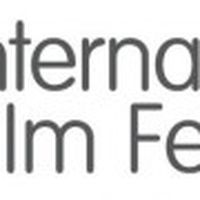An Overview On Some Of Asia’s Most Important Film Festivals
Over a thousand film festivals take place each year in every corner of the globe. The majority of the world's film festivals are in Europe, still home to the most important three: Berlin in February, Cannes in May and Venice at the end of August.Festivals in Asia are relatively young in comparison. The Hong Kong International Film Festival is thirty-something editions old while Tokyo's main festival is just entering its twenties. The region's most vibrant festivals are just entering their teenage years.
The histories of film festivals are often tied to national cinemas. Korean film festivals boomed alongside local film in the mid-1990s just as the Hong Kong International Film Festival enjoyed its Golden Years as a gateway for mainland Chinese film in the 1980s.
The heart of any festival is its program of films and its audience, sometimes forgotten as events concentrate on adding film markets for buyers, project markets for investors, film academies for directors, talent showcases for agencies and networking events for producers.
Here is an overview of some of the region's most important film festivals.
Hong Kong IFF (Hong Kong, mid-March)
First major Asian festival of the year is an important event to debut independent cinema from China, Hong Kong and Taiwan. Successful affiliated market is helping to reinvigorate the festival which had its golden age in the 1980s when it debuted China's Fifth Generation.
Singapore IFF (Singapore, April)
Event's strength lies in its program of South East Asian cinema, but it suffers from country's strict censorship that results in several films pulled every year. New programming team joins for 22nd edition in 2009 after the founding team parted ways this summer.
Jeonju IFF (South Korea, early May)
South Korea's independent-oriented film festival has to struggle against the more powerful indie-oriented Pusan IFF. Event has prospered through smarter programming and through the commissioning of its own short films every year from leading directors.
Shanghai FF (China, June)
China's leading film festival improves each year but perhaps not fast enough to fulfill its potential in the region. Affiliated business events are proving valuable to the local industry, even if it is unable to premiere the best of local cinema.
Taipei IFF (June/July)
With Taiwan producers preferring to debut their films in the Hong Kong and Pusan festivals, event has increased its attention on local films still in production. However, under new programming team it is no longer an important festival for uncovering new Chinese talent.
Puchon IFFF (South Korea, late July)
Asia's most important festival of fantasy cinema introduces a project market for genre films in 2008, inviting investors and buyers from Europe for the first time. Programming team has a new-found confidence in its genre direction that makes it an event to watch.
Chungmuro IFF (South Korea, early September)
Launched in 2007, event immediately gained respect within the industry for its distinctive direction with a focus on films from the past. 2008 edition launches an international competition for new films as it broadens its direction and ambitions.
Bangkok IFF (Thailand, late September)
Once one of the richest festivals in the region, it now languishes with just 10% of its original budget after an international corruption scandal. A new programming team will struggle to put it back on the festival map in its upcoming sixth edition.
Pusan IFF (South Korea, early October)
Asia's leading film festival boomed alongside the world's interest in Korean cinema and must now assert its importance as the local industry struggles. Still the region's must-attend event even as it struggles to find a clear direction for its film market.
Tokyo IFF (Japan, late October)
Backed by Japanese film studios, event is primarily an event to promoting upcoming releases to local audiences. Over the past decade, event's best programmers have left. However, its successful affiliated film market, TIFFCOM, has increased its relevance.
Bangkok World Film Festival (Thailand, late October)
Although the indie-oriented event screens no local films and does not subtitle foreign films in Thai script, it may emerge as the country's key film festival by default this year as its main rival reels from budget cuts.
Golden Horse FF (November/December)
Taipei's main film festival has always come second to its affiliated Film Awards, but new management last year gave it some much-needed love and a greater focus on Chinese-language cinema which will be amplified this year with a new head of programming. One to watch.
FilmEx FF (Japan, November/December)
Indie-oriented festival is particularly strong on Middle East cinema, but its Asian program suffers from its proximity to the stronger Pusan event. Must-see part of the program is its annual retrospective of a local filmmaker with new prints.
Jakarta IFF (Indonesia, early December)
The hottest new festival in Asia is severely under funded by supported by a huge local audience, reminiscent of the golden age of Korean film festivals in 1996-1998. Strength of the festival is in its comprehensive program of Indonesian cinema.
By Stephen CREMIN
Similar content
posted on
28 Feb 2012
deadline
31 Dec 2013
By Jérémy Segay
03 Nov 2005
By Kerrine Goh
29 Nov 2007
By Jérémy Segay
27 Jan 2006


